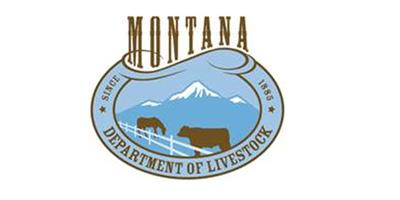Over the last year and a half, the Board of Livestock has been very focused on turning around the budget for the Department of Livestock (DOL). And it seems to be working. During the last board meeting, it was announced that the Board would be able to raise staff wages, thanks to budget improvements.
That's a big change from where the Department of Livestock was financially just a few years ago. Two years ago, the Legislative Audit Committee of the Montana State Legislature was told that the Department's budget was an estimated $800,000 short. A year and a half ago, employees were put on a 4 day work week furlough for 4 months to help make up budget shortfalls.
When discussing how the Board of Livestock turned the department budget around, Mike Honeycutt, Executive Director of the Department of Livestock stated, “Two factors have lead this, and the credit goes to the Board of Livestock. First, a year ago, faced with some of the economic consequences, the Board of Livestock raised the per capita fees, and they also looked at brand fees and lab fees. In all those categories, they raised the fees which brought more revenue into the department. The second factor is our staff has done an incredible job getting expenditures under control, and that's put us in a position to put money back into a fund balance.”
“The extra revenue that we've been able to obtain, we needed to reinvest somewhere in the department for the good of the people that we serve,” said Honeycutt. “It appeared that over the last decade, one area that had not really been looked very strongly were staff employee and keeping them competitive with rest state government, and competitive with state governments in our region.”
Northern Ag Network's Russell Nemetz spoke with the Department of Livestock's Executive Director, Mike Honeycutt about the anticipated pay raises and why it was important to invest the budget surplus into Department of Livestock employees.
As reported by the Marias River Livestock Association, the Board of Livestock chose to bring the Departments staff’s wages up to 80{2fba0047518ad2e639da733ea78e24abf77cec06f485a26b152e17f2a77aa67a} of market value after a presentation of a requested study of the budget and ability to raise wages. The wage increase will now undergo review and approval by the State Budget Office. The approval seemed very likely and the wage increase would go into affect retroactively July 1st, 2016 if the approval comes after that date.
It was noted during the meeting that the Department of Livestock had long had a reputation for low pay and some employees were being paid only 58{2fba0047518ad2e639da733ea78e24abf77cec06f485a26b152e17f2a77aa67a} of the market value for their position. “Some of the starting salaries were well below what fast food restaurants in those areas were advertising, ” said Honeycutt. With the pay increases, the board hoped they would be able to keep current employees, be able to fill the existing vacancies quicker and to hire persons with higher skill sets.
The Board of Livestock thanked the livestock producers for accepting the increases in brand fees and per capita fees that allowed the department the ability to provide pay raises for employees to help bring wages up to market value.
Other Highlight from the Board of Livestock Meeting:
- The Board of Livestock had a presentation from the Peace Officer Safety Training Council regarding changes that have been made to policy and standards for law enforcement officers in recent years. Honeycutt said the department is working with their Livestock Crime investigators and staff working in a law enforcement capacity to ensure they are getting the training and opportunities necessary to stay up to date as law enforcement personnel for the state.
- A petition has been put forward to Fish Wildlife and Parks (FWP) by the Natural Resources Defense Council to limit some of the tools that USDA Wildlife Services could use in active Grizzly Bear habitat. The Board of Livestock was invited to a joint meeting with FWP and the Fish Wildlife Commission to discuss the proposed changes to trapping regulation and how those changes could adversely affect predation on livestock.
- Update on the Milk Assessment Fee. Comments are currently being accepted on the new revised rule for the Milk Assesment Fee until July 1. Honeycutt noted that there have not been many comments received to date, which was not unexpected considering the number of diary producers who were involved in the two work sessions that helped develop the revised rule.
Source: Northern Ag Network, Marias River Livestock Association Newsletter




